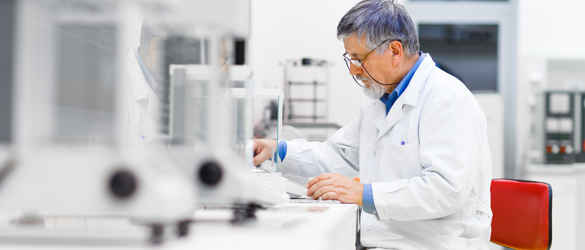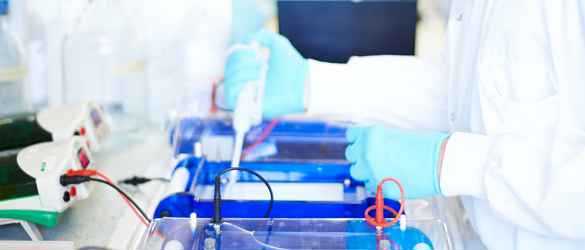
Creating a ‘virtual eye’ with mathematical modelling
Mathematics can be used to model or represent how the real world works. Mathematicians have already worked to create virtual hearts and lungs. A group of mathematicians, clinicians, engineers and biologists are now coming together to start looking at creating a model for the eye. They hope this model could describe the functioning of the eye and help us understand what goes wrong in disease.
This new and exciting area of research could one day allow clinicians to create personalised models of a patient’s eye. Clinicians could then test how the model thinks the patient may react to different drugs based on the patient’s eye scans, genetics and other factors.
The Macular Society supported the first in-person meeting to discuss how to develop the virtual eye and the plan of action or ‘roadmap’ to create this. This roadmap has now been created and can be found below.
Dr Peter Stewart from University of Glasgow, who chaired the meeting, explained that the event included productive discussions on the feasibility of making a theoretical virtual eye for clinical use.
“Over the three days we took the first steps toward realising such a project, devising a simple prototype which we will start to build over the next few months. We are extremely grateful to the Macular Society for providing the funding to make the event possible - the ability to conduct such discussions face-to-face in a dedicated time has significantly accelerated our progress.''
Dr Peter Stewart, University of Glasgow
Research news
The latest developments in the search for better treatments and a cure for macular disease.
Research features
The truth behind the headlines on sight loss, “cures” for blindness and research breakthroughs.
Explore our research
Beating macular disease through funding medical research and improving the lives of those living with macular disease.
Get involved in research
Patients have a very important part to play in medical research. Without them we would not have the treatments we have today and new and improved treatments would not be possible.
Get the latest research news from the Macular Society
To hear about life-changing research and treatments, subscribe to our monthly enewsletter today. Together we can Beat Macular Disease.
Sign up to our free email newsletter






